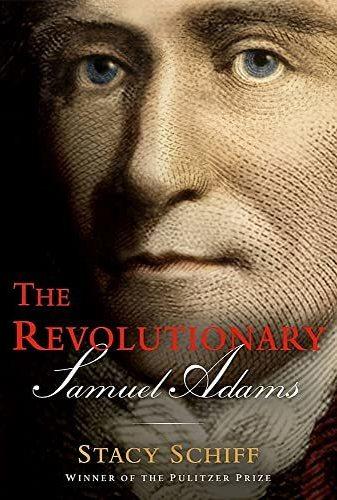Section Branding
Header Content
Author reminds Americans that Samuel Adams was a revolutionary before he was a beer
Primary Content
Maybe it's the company I keep. Over the past few weeks, when I've told friends and neighbors that I've been reading a superb new biography of Samuel Adams, almost everyone has responded by saying something to the effect of, "Oh, the beer guy!"
Well, yes, Adams was a brewer, but he was also a patriot — maybe the most crucial patriot. That's the argument of Stacy Schiff's charged new biography of Samuel Adams, The Revolutionary. Schiff illuminates how well in advance of Washington, Jefferson, Franklin or John Adams (his more prominent cousin) Samuel Adams strategized, wrote and wrangled the American Revolution into inevitability.
Schiff is in good company in thinking so: Thomas Hutchinson, the royal governor of the province of Massachusetts Bay, damned Samuel Adams as "the chief incendiary" of the revolutionary passions that ignited in Boston; contemporaries credited Samuel Adams with being the "prime mover" of the Boston Tea Party. Thomas Jefferson called Adams "the patriarch of liberty." Samuel Adams not only was the earliest advocate for independence from Great Britain, but he also argued against slavery and for universal free public education.
Schiff points out that while most of America's founders became "giants after independence ... Adams began to shrink" — although she makes too short work of why that might be so. As it happens, Adams, the great advocate for the colonial rebellion, later urged the state of Massachusetts to crush the uprising of indebted farmers known as Shays' Rebellion. He also fell out of favor because, unlike many of the other prominent members of the revolutionary generation, Adams opposed the ratification of the Constitution, believing that a stronger federal government would limit the rights of the people. Instead Schiff stresses that Adams' diminished legacy derived from the fact that, to protect his political associates, he kept no copies of his own letters. Nor did he leave a memoir behind.
As a biographer, though, Schiff is accustomed to uncovering trails that have grown cold; after all, one of her earlier books was a revelatory life of Cleopatra. The Revolutionary is not merely a dutiful exhumation of a poorly remembered Founding Father, it's a thrilling, timely account of how the American Revolution happened; how the colonists were radicalized and came to think of themselves not as Bostonians or Virginians, but as "Americans." And, how Samuel Adams, through countless meetings and in countless newspaper essays written under 30-some pseudonyms, played an essential role in that transformation.
The Revolutionary is informed on every page by scholarship, but Schiff, as Adams himself did, knows how to hold an audience. Since Adams was a late bloomer, not coming into his own until his early 40s, Schiff postpones her account of his youth and opens on one of the most cinematic moments in American history; namely, Paul Revere's ride. Even those who remember the Longfellow poem may not recall that Revere galloped through an April night in 1775 to warn Samuel Adams and John Hancock to flee their lodging in Lexington, Mass. British troops were on the move, looking for the men's "arrest, if not outright assassination." Here's a snippet from Schiff's opening paragraph, written in present tense:
A glimmer, a gleam, the hurry of hoofs: a sturdy, square-jawed man speeds through the night, with an urgent message, on a borrowed horse. ... Within days he will know he has participated in some kind of history, though he ... is never to know that his own account will be obliterated — the adrenaline alone enduring — by verse, leaving him trapped in tetrameter, a mythic figure, eternally jouncing his way toward Lexington.
Schiff brings that same sense of immediacy to other key moments in Adams' life, foremost among them the first stirrings in 1772 of his history-altering suggestion that representatives from each colony should meet. "[I]n this time of common distress, [Adams wrote under pseudonym in The Boston Gazette] it would be the wisdom of the colonists more frequently to correspond with, and to be more attentive to, the particular circumstances of each other." Adams was laying the groundwork for what would become the First Continental Congress in 1774.
Schiff tells us that in relentlessly drumming up enthusiasm for all those early town meetings that would ultimately culminate in the idea of American independence, Adams wrestled with "intrigue on one side and apathy on another" — a phrase which has all too grim, contemporary resonance.
Copyright 2022 Fresh Air. To see more, visit Fresh Air.

